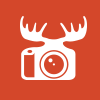Home
Tips & Tricks
Sony Tips
Sony a6400
Sony a6300
Sony a6000
Canon Tips
Canon M50 Mark II
Canon M50
Canon 6D Mark II
Canon 6D
Canon 7D Mark II
Canon 7D
Canon 90D
Canon 80D
Canon 77D
Canon 70D
Canon 60D
Canon T7 · 2000D
Canon T7i · 800D
Canon T6s · 760D
Canon T6i · 750D
Canon T6 · 1300D
Canon T5i · 700D
Canon T5 · 1200D
Canon T4i · 650D
Canon T3i · 600D
Canon T3 · 1100D
Canon T2i · 550D
Canon SL2 · 200D
Canon SL1 · 100D
Nikon Tips
Nikon D750
Nikon D500
Nikon D7500
Nikon D7200
Nikon D7100
Nikon D5600
Nikon D5500
Nikon D5300
Nikon D5200
Nikon D5100
Nikon D3500
Nikon D3400
Nikon D3300
Nikon D3200
Nikon D3100
Cheat Sheets
Sony Cheat Sheets
Sony a6300
Sony a6000
Canon Cheat Sheets
Canon M50 Mark II
Canon M50
Canon 6D Mark II
Canon 6D
Canon 7D Mark II
Canon 7D
Canon 90D
Canon 80D
Canon 77D
Canon 70D
Canon 60D
Canon T7 · 2000D
Canon T7i · 800D
Canon T6s · 760D
Canon T6i · 750D
Canon T5i · 700D
Canon T6 · 1300D
Canon T5 · 1200D
Canon T4i · 650D
Canon T3i · 600D
Canon T3 · 1100D
Canon T2i · 550D
Canon SL2 · 200D
Canon SL1 · 100D
Nikon Cheat Sheets
Nikon D750
Nikon D500
Nikon D7500
Nikon D7200
Nikon D7100
Nikon D5600
Nikon D5500
Nikon D5300
Nikon D5200
Nikon D5100
Nikon D3500
Nikon D3400
Nikon D3300
Nikon D3200
Nikon D3100

Comments
Also, don't get too overwhelmed trying to learn ten things at once. Focus on one thing at a time. Start with the basics, composition, rule of thirds, leading lines, and learn your triangle (Aperture, Shutter Speed, ISO). Mess with them one at a time and learn how each one affects the photo as well as the other two.
Practice and have fun enjoying the learning process. :)
I would recommend getting comfortable in shutter priority, aperture priority, and program auto mode. That's a great way to learn how the different settings (shutter, aperture, iso etc.) work together without getting overwhelmed, since the camera will still control most of the output. Also, you should consider experimenting with the 18-55mm at 18mm, 35mm and 50mm with the same subjects to see how focal length affects an image. For instance, taking a portrait at 18mm can give you a dramatically different feel than 55mm, because you can get more of the surrounding environment into the image or use the exaggerations created by an 18mm lens to take some silly (if at times unflattering) portraits.
This website is free and the guy is a practicing photographer, not a journalist as on some sites.
Go through the beginner first and watch one a day and then practice what you learned.
There are various good books published by photographers on this camera and it is well worth investing in one. Read it through like a novel, then start again and practice different aspects of the camera. As Adelphos said, "walk don't run", it will come to you eventually if you have patience. You suddenly reach that Eurika moment, when everything is starting to drop into place, then you really start to learn. It is a steady build up of your knowledge and experience. You don't need a lot of fancy lenses until you have mastered the camera and even then the 18-55mm is a good all around lens.
Also, you can borrow some good general DSLR photography books out of your local library, which will explain light, exposure etc. Each author tackles it differently and comes across to different people. I think I have read about 25 books in the last 2 years.
Good luck and enjoy learning.
Taking my camera out today for a bbq. I will keep on practicing and I look forward to getting more comfortable with this camera as each day passes! I will keep you all posted and will ask more questions I'm sure!